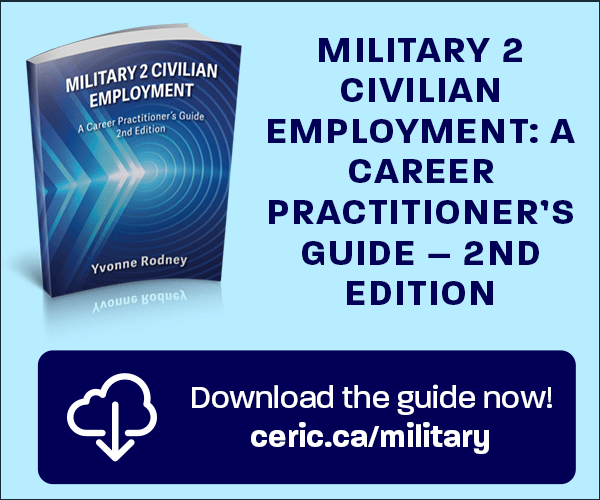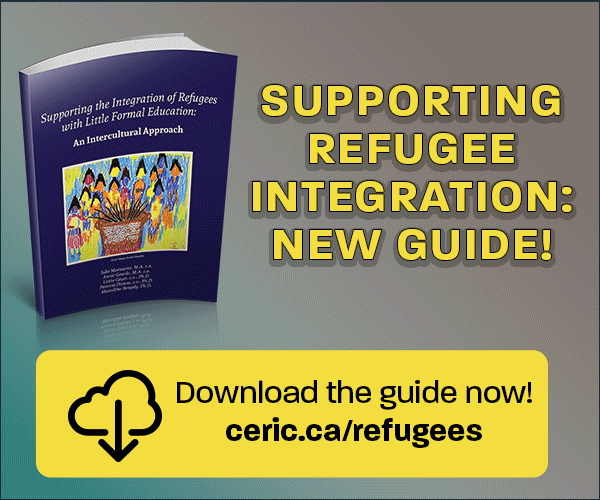Oppressions and Systemic Barriers in Helping Marginalized Populations
A Review of the Scope
DOI:
https://doi.org/10.53379/cjcd.2022.227Keywords:
marginalized populations, system barriers, systems of oppression, inclusive, counselling services, intersectionalityAbstract
Adopting an intersectional perspective, this scoping review looked at what the literature of the past five years has identified in terms of barriers arising from different systems of oppression that reduce the inclusivity of helping services for marginalized populations. The analysis of the results of the 13 articles selected revealed the presence of barriers and discrimination in social and human services for adults with Autism Spectrum Disorder without intellectual disabilities (barriers arising from ableism); for individuals experiencing homelessness and working class people (barriers arising from capitalism and classism); for Black people (barriers arising from racism); for people whose sexual orientation diverges from heteronormative norms including older people (barriers arising from heterosexism, heteronormativity, homophobia and ageism); and for people whose gender identity or expression diverges from cisnormative norms (barriers arising from cissexism, transphobia and enbyphobia). This portrait of systemic barriers emerging from the recent literature raises an important need for action to support career development professionals to better consider systems of oppression in order to intervene in a more inclusive and intersectional manner.
References
American Counseling Association. (2010). Competencies for Counseling with Transgender Clients. Journal of LGBT Issues in Counseling, 4, 135–159. https://doi.org/10.1080/15538605.2010.524839
American Psychological Association (APA) (2015). Guideline for Psychological Practice With Transgender and Gender Non Conforming People. http://www.apa.org/practice/guidelines/transgender.pdf
Angelino, A., Evans-Campbell, T. et Duran, B. (2020). Assessing Health Provider Perspectives Regarding Barriers American Indian/Alaska Native Transgender and Two-Spirit Youth Face Accessing Healthcare. Journal of Racial and Ethnic Health Disparities, 7, 630–642. https://doi.org/10.1007/s40615-019-00693-7
Arksey, H. et O’Malley, L. (2005). Scoping studies: Towards a methodological framework. International Journal of Social Research Methodology, 8(1), 19–32. https://doi.org/10.1080/1364557032000119616
Arthur, N. (2019). Culture-Infused Career Counselling: Connecting Culture and Social Justice in Career Practices. Dans Arthur, N., Neault, R. et McMahon, M. (dir), Career Theories and Models at Work: Ideas for Practice (p. 21-30). Toronto, Canadian Education and Research Institute for Counseling (CERIC).
Arthur, N. et Collins, S. (2014). Conseillers, counselling et justice sociale: le professionnel est politique. Revue canadienne de counseling et de psychothérapie, 48(3), 178-185
Arthur, N., et Collins, S. (2010). Culture-infused counselling (2e éd.). Calgary, AB : Counselling Concepts.
Arthur, N., Collins, S., McMahon, M., et Marshall, C. (2009). Career Practitioners’ Views of Social Justice and Barriers for Practice. Canadian Journal of Career Development, 8(1), 22-31.
Barnes, J. (2016). Are they rich because they’re smart? Class, privilege and learning under capitalism. New York, NY : Pathfinder Press.
Bickerstaff Charron, J. (2011). Compte rendu de [Martine Lagacé (dir.), L’âgisme : comprendre et changer le regard social sur le vieillissement, Québec, Presses de l’Université Laval, 2010, 278 p.] Nouvelles pratiques sociales, 23(2), 236–240. https://doi-org.proxy.bibliotheques.uqam.ca/10.7202/1006141ar
Bilge, S. (2009). Théorisations féministes de l’intersectionnalité. Diogène, 1(1), 70-88. https://doi.org/10.3917/dio.225.0070
Bimrose, J. (2019). Sociological Career Theory: Refraiming Choice. Dans Arthur, N., Neault, R. et McMahon, M. (dir), Career Theories and Models at Work: Ideas for Practice (p. 53-62). Toronto, Canadian Education and Research Institute for Counseling (CERIC).
Blais, M., Baiocco, M., Philibert, M., Chamberland, L. et l’Équipe de recherche SAVIE-LGBTQ (2018). Rapport de la consultation préliminaire SAVIE-LGBTQ en vue de la planification de l’enquête. Savoirs sur l’inclusion et l’exclusion des personnes LGBTQ (SAVIE-LGBTQ), Université du Québec à Montréal.
Barnoff, L. et Moffat, K. (2007). Contradictory tensions in anti-oppression practice in feminist social services, Journal of Women and Social Work, 22(1), 56–70.
Canadian Education and Research Institute for Counseling (CERIC). (2017). Career Development and Social Justice [recherche documentaire]. Récupéré de https://ceric.ca/fr/wpdm-package/orientation-professionnelle-ayant-un-impact-social-en-anglais/
Cénat, J. M. (2020). How to provide anti-racist mental health care. The Lancet Psychiatry, 7(11), 929-931. https://doi.org/10.1016/S2215-0366(20)30309-6
Commission ontarienne des droits de la personne. (s.d.). Capacitisme, attitudes négatives, stéréotypes et stigmatisation (fiche). Récupéré de http://www.ohrc.on.ca/fr/capacitisme-attitudes-n%C3%A9gatives-st%C3%A9r%C3%A9otypes-et-stigmatisation-fiche#_edn1
Corbière, M. et Larivière, N. (Dir.). (2020). Méthodes qualitatives, quantitatives et mixtes dans la recherche en sciences humaines, sociales et de la santé (2e éd.). Presses de l’Université du Québec.
Devlin, R. et Dianne P. (2006). Introduction: Toward a Critical Theory of Dis-Citizenship. Dans Critical Disability Theory: Essays in Philosophy, Politics, Policy and Law, 25–45. Brittish Columbia: UBC Press
Dionne, P. et Dupuis, A. (2019). Cultural Activity Theory: Group Career Counseling for Social Justice of Racialized Women. Dans Arthur, N., Neault, R. et McMahon, M. (dir), Career Theories and Models at Work: Ideas for Practice (p. 103-113). Toronto, Canadian Education and Research Institute for Counseling (CERIC).
Fédération des maisons d’hébergement pour femmes (2018). Intervention féministe intersectionnelle : Réflexions et analyses pour des pratiques égalitaires et inclusives. Montréal : Impressions Hic
Feugé, A., Chamberland, L., Kamain, O., et Dumas, J. (2017). Les femmes moins bien servies que les hommes ? Évaluation des services sociaux et de santé offerts aux minorités sexuelles. Service social, 63(2), 99–113. https://doi.org/10.7202/1046502ar
Foster, V. A. et May, K. M. (2003). Counseling Women from Feminist Perspectives. Dans Vacc, N.A., DeVaney, S.B., et Brendel, J.M. (Eds.). Counseling Multicultural and Diverse Populations: Strategies for Practitioners. (4e éd.). 158-183. New York, NY: Brunner-Routledge.
Fouad, N. A. et Byars-Winston, A. M. (2006). Metacognition and Multicultural Competence: Expanding the Culturally Appropriate Career Counseling Model. The Career Development Quarterly, 54, 187-201.
Gaborean, F., Negura, L. et Moreau, N. (2018). Les enjeux intersectionnels de la demande de services de santé mentale au Canada: la situation des jeunes femmes dépressives francophones. Canadian Social Work Review / Revue canadienne de service social, 35 (1), 27–44. https://doi.org/10.7202/1051101ar
Gouveia, M. et Zanello, V. (2019). Psychotherapy, Race, and Racism in Brazilian context: Experiences and Perceptions of Black Women. Psicologia em Estudo, 24, 1-13.
Guerrero-Arias, B. E., Agudelo-Orozco, A. et Pava-Ripoll, N. A. (2020) Intersectional identity chronotopes: expanding the disability experience. Disability & Society, 35(10), 1660-1681. https://doi.org/10.1080/09687599.2020.1719041
Guide canadien des compétences pour les professionnels en développement de carrière.(2004). Code d’éthique. Récupéré de https://career-dev-guidelines.org/competences/?lang=fr
hooks, b. (2000). Feminist theory: From margin to center. Londres, Angleterre: Pluto Press
Jackson, S. D., Mohr, J. J., Sarno, E. L., Kindahl, A. M. et Jones, I. L. (2020). Intersectional experiences, stigma-related stress, and psychological health among Black LGBQ individuals. Journal of Consulting and Clinical Psychology, 88(5), 416–428. https://doi-org.proxy.bibliotheques.uqam.ca/10.1037/ccp0000489
Kattari, S. K., et Hasche, L. (2016). Differences Across Age Groups in Transgender and Gender Non-Conforming People’s Experiences of Health Care Discrimination, Harassment, and Victimization. Journal of Aging and Health, 28(2), 285–306.
Kugelmass, H. (2016). “Sorry, I’m Not Accepting New Patients”: An Audit Study of Access to Mental Health Care. Journal of Health and Social Behavior, 57(2), 168–183.
Marx, K., et Engels, F. (1907). Capital: A critique of political economy (Vol. 2). Chicago, IL: Charles H. Kerr.
McCullough, R., Dispenza, F., Parker, L. K., Viehl, C. J., Chang, C. Y., et Murphy, T. M. (2017). The Counseling Experiences of Transgender and Gender Nonconforming Clients. Journal of Counseling & Development, 95, 423-434.
McGeorge C. R., Coburn K.O. et Walsdorf A. A. (2021). Deconstructing cissexism: The journey of becoming an affirmative family therapist for transgender and nonbinary clients. Journal of Marital and Family Therapy, 0(0), 1–18. https://doi.org/10.1111/jmft.12481
Medico, D. et Pullen-Sansfaçon, A. (2017). Pour des interventions anti-oppressives auprès des jeunes trans : nécessités sociales, évidences scientifiques et recommandations issues de la pratique. Service social, 63(2), 21–34. https://doi.org/10.7202/1046497ar
Medin, D. (1989). Concepts and conceptual structure. American Psychologist, 44, 1469-1481.
Mizock, L. et Lundquist, C. (2016). Missteps in Psychotherapy With Transgender Clients: Promoting Gender Sensitivity in Counseling and Psychological Practice. Psychology of Sexual Orientation and Gender Diversity, 3(2), 148 –155. http://dx.doi.org/10.1037/sgd0000177
Nelson, S. E. et Wilson, K. (2018). Understanding barriers to health care access through cultural safety and ethical space: Indigenous people’s experiences in Prince George, Canada. Social Science & Medicine, 218, 21–27. https://doi.org/10.1016/j.socscimed.2018.09.017
Ordre des conseillers et conseillères d’orientation du Québec. (s.d). Code de déontologie des membres de l’Ordre des conseillers et conseillères d’orientation du Québec. Code des professions (L.R.Q., c. C-26, a. 87). Récupéré de https://orientation.qc.ca/files/Code-de-d%C3%A9ontologie.pdf
Ordre des conseillers et conseillères d’orientation du Québec. (2020). Guide explicatif du Code de déontologie des membres de l’OCCOQ. Récupéré de https://www.moodle2.uqam.ca/coursv3/pluginfile.php/3784922/mod_resource/content/1/Guide%20explicatif%20du%20Code%20de%20d%C3%A9ontologie_VF.pdf
Ordre des conseillers et conseillères d’orientation du Québec (2010). Profil des compétences générales des conseillers d’orientation. Montréal, OCCOQ.
Picard, F., Turcotte, M., Viviers, S. et Dionne, P. (2019). Career Development Practices from the Capabilities Perspective of Social Justice. Dans Arthur, N., Neault, R. et McMahon, M. (dir), Career Theories and Models at Work: Ideas for Practice (p. 103-113). Toronto, Canadian Education and Research Institute for Counseling (CERIC).
Pieterse, A. L., Utsey, S. O., et Miller, M. J. (2016). Development and initial validation of the anti-racism behavioral inventory (ARBI). Counselling Psychology Quarterly, 29(4), 356-381. https://psycnet.apa.org/doi/10.1080/09515070.2015.1101534
Pope, M. (2019). The Career Counseling Whith Underserved Populations Model in Practice. Dans Arthur, N., Neault, R. et McMahon, M. (dir), Career Theories and Models at Work: Ideas for Practice (p. 103-113). Toronto, Canadian Education and Research Institute for Counseling (CERIC).
Pullen Sansfaçon, A. (2015). Parentalité et jeunes transgenres : un survol des enjeux vécus et des interventions à privilégier pour le développement de pratiques transaffirmatives. Santé mentale au Québec, 40(3), 93-107.
Pullen Sansfaçon, A. (2013). La pratique anti-oppressive (p. 353-373). Dans H. Dorvil et E. Harper(dir.), Le travail social. Théories, méthodologies et pratiques. Québec : Presses de l’Université du Québec.
Rachédi, L. et Taïbi, B. (2019). L’intervention interculturelle (3e édition). Montréal : Chenelière Éducation
Ramsay, N., Hossain, H., Moore, M., Milo, M. et Brown, A. (2019). Health Care While Homeless: Barriers, Facilitators, and the Lived Experiences of Homeless Individuals Accessing Health Care in a Canadian Regional Municipality. Qualitative Health Research, 29(13), 1839–1849.
Ramsundarsingh, S. et Shier, M. L. (2017). Anti-Oppressive Organisational Dynamics in the Social Services: A Literature Review. The British Journal of Social Work, 47(8), 2308–2327, https://doi.org/10.1093/bjsw/bcw174
Ratts, M. J., Singh, A. A., Nassar-McMillan, S., Butler, S. K., et McCullough, J. R. (2015). Multicultural and social justice counseling competencies. Récupéré de https://www.counseling.org/docs/default-source/competencies/multicultural-and-social-justice-counseling-competencies.pdf?sfvrsn=20
Rosati, F., Pistella, J. et Baiocco, R. (2020). Italian Sexual Minority Older Adults inHealthcare Services: Identities, Discriminations, and Competencies. Sex Res Soc Policy, 18, 64–74. https://doi.org/10.1007/s13178-020-00443-z
Sakamoto, I. et Pitner, R. (2005). Use of critical consciousness in anti oppressive social work practice: Disentangling power dynamics at personal and structural levels, British Journal of Social Work, 35, 435–52.
Sénéchal, C., Fontaine, C., Larivée, S. et Legault, F. (2011). Insertion professionnelle des adultes québécois ayant un trouble autistique ou un syndrome d’Asperger. Santé mentale au Québec, 36 (1), 181–199. https://doi.org/10.7202/1005820ar
Shin, R.Q., Smith, L. C., Welch, J. C. et Ezeofor, I. (2016). Is Allison More Likely Than Lakisha to Receive a Callback From Counseling Professionals? A Racism Audit Study. The Counseling Psychologist, 44(8), 1187–1211.
Shin, R., Smith, L. C., Vernay, C. N., Welch, J. C., Sharma, R. et Eberhardt, M. (2020). Accessing Counseling Services Where the Rainbow Doesn’t Shine: A Heterosexism Audit Study. Journal of Homosexuality, 1-20. https://doi.org/10.1080/00918369.2020.1734377
Smith, R. W., Altman, J. K., Meeks, S. et Hinrichs, K. L. M. (2019). Mental Health Care for LGBT Older Adults in Long-Term Care Settings: Competency, Training, and Barriers for Mental Health Providers. Clinical Gerontologist, 42(2), 198-203. https://doi.org/10.1080/07317115.2018.1485197
Sue, D. W., Arredondo, P. et McDavis, R. J. (1992). Multicultural counseling competencies and standards: A Call to the Profession. Journal of Counseling and Development, 70, 477-486. https://psycnet.apa.org/doi/10.1002/j.2161-1912.1992.tb00563.x
Sue, D. W. (1981). Evaluating process variables in cross-cultural counseling and psychotherapy. Dans A. J. Marsella et P. B. Pedersen (Orgs.), Cross-cultural counseling and psychotherapy (p. 102-125). New York, NY: Pergamon.
Sue, D. W., et Sue, D. (2003). Counseling the culturally diverse: theory and practice (4e éd). New York, NY: John Wiley & Sons.
Supeno, E., Dionne, P., Viviers, S. et Rivard, L. (2020). L’advocacie sociale et professionnelle dans les professions en santé mentale et en relations humaines : un tour d’horizon (2e partie). L’Orientation, le magazine des conseillers et conseillères d’orientation du Québec, 10(2), 28-33. https://www.orientation.qc.ca/files/Magazine_OCCOQ_aout-2020_Web.pdf
Tricco, A. C. et al. (2018) PRISMA Extension for Scoping Reviews (PRISMA-ScR): Checklist and Explanation. Annals of Internal Medicine, 169 (7), 467-473. https://doi.org/10.7326/M18-0850
Turnbull, M. et Stokes, H. (2011) Evaluation of the Brimbank young men’s project. Centre for Multicultural Youth. Récupéré de https://www.voced.edu.au/content/ngv%3A46698
Vallerand, V. (2016). Social Studies in Quebec: How to Break the Chains of Oppression of Visible Minorities and of the Quebec Society. eJournal of Education Policy, Special Issue, 1-7
Vogan, V., Lake, J. K., Tint, A., Weiss, J. A. et Lunsky, Y. (2017). Tracking health careservice use and the experiences of adults with autism spectrum disorder without intellectual disability: A longitudinal study of service rates, barriers and satisfaction. Disability and Health Journal, 10, 264-270.
Young, C. (2020). Interlocking systems of oppression and privilege impact African Australian health and well‐being in greater Melbourne: A qualitative intersectional analysis. Journal of Social Issues, 76, 880– 898. https://doi.org/10.1111/josi.12407

Downloads
Published
How to Cite
Issue
Section
License
Copyright (c) 2022 Canadian Journal of Career Development

This work is licensed under a Creative Commons Attribution-NonCommercial-NoDerivatives 4.0 International License.
















